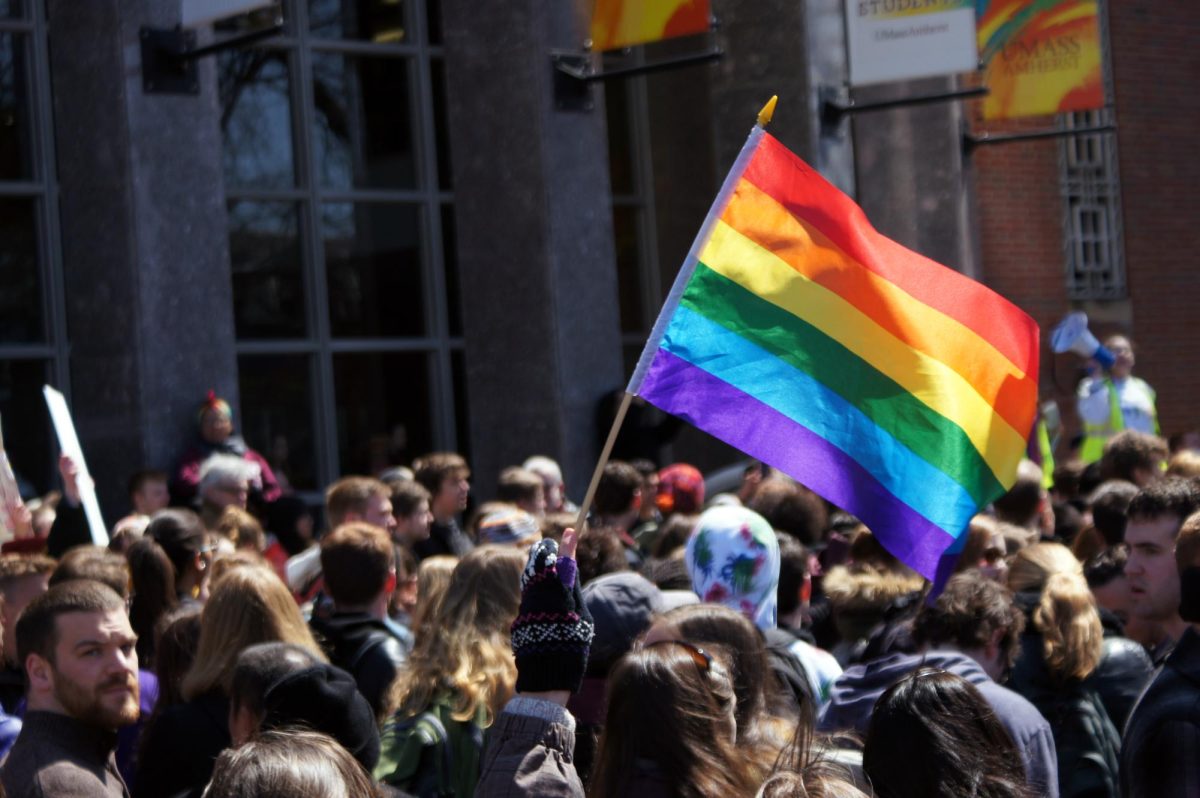To commemorate the 36th National Coming Out Day, I want to call for an end to labeling non-Western nations as more homophobic and transphobic than Western nations. The belief that Western nations are always ahead of the “rest” of the world about queer and transgender rights is pervasive and has immense consequences. This notion has also circulated in some of my classes at the University of Massachusetts, causing my blood to boil. I want to stress that this view does not tell the whole story — it actually erases it.
It may be tempting to use current policy to measure how “ahead” or “behind” part of the world is, but the present moment is not the whole picture. This line of thinking erases the queer histories that came before colonization. It also disregards the meaningful activism taking place today to undo its legacy and the policy targeting marginalized groups.
One region that has been scrutinized for its treatment of queer and transgender people is South Asia. In 2018, the Supreme Court of India decriminalized homosexuality by repealing Section 377 of the Indian Penal Code. In the same year, the National Assembly of Pakistan enacted the Transgender Persons (Protection of Rights) Act, which recognized transgender people as a third gender and granted them fundamental rights. More needs to be done to advance queer and transgender lives in the subcontinent, but we cannot overlook how we got here.
The seemingly delayed actions of these governments are a result of colonialism in the region. British powers policed genders and sexualities that did not align with what they deemed “normal,” in the form of Section 377 and through other means.
There continues to be a perception that South Asian societies are intensely heteronormative and rigid. But before the subcontinent was colonized, “queerness” and gender fluidity were not stigmatized. Queer stories were commonly found in medieval South Asian literature, such as Sufi poetry. Poets like Amir Khusro, Bulleh Shah and Shah Hussain frequently wove queer themes into their works. The medieval courts also employed Khwaja Saras – gender-variant people – to be guardians of zenanas, or secluded women’s quarters, as well as state officials. The Hijra community, people who lived as women and were assigned male at birth, was also a part of the social sphere. Queer themes can also be found in texts such as the “Ramayana” and “Kama Sutra.”
In addition to the complex history behind current policy, the idea that non-Western nations are “behind” because they are “more homophobic” undermines the activism of those regions. Grace Banu, a trans and Dalit activist based in Tamil Nadu, India, is doing phenomenal work.
Banu founded the Trans Rights Now Collective, which centers on Dalit people, trans and intersex people, the Bahujan political party and Adivasi, or Indigenous people. She sheds light on the intersection of gender and caste discrimination in India and emphasizes the caste hierarchies that exist within transgender communities. Banu was also the first transgender woman to be admitted into an engineering college and continues to fight for reservations for transgender people. Banu’s activism, like other grassroots activism, acknowledges how gender, sexuality, race, class and caste intersect to shape one’s life, unlike much mainstream activism in the U.S.
Many non-Western nations are struggling with homophobic and transphobic policies. Gay marriage is legal in the U.S., but not in India or Pakistan. But the U.S. is far from a queer-utopia. Gay marriage has not been legal for a decade, meanwhile, transgender rights are currently under attack. The U.S. has seen a rise in anti-trans legislation. A record-breaking 658 bills were introduced in 2024, with 45 passing. These newly-signed laws have catastrophic effects on the civil rights, healthcare, education and legal recognition trans people have access to. But in the U.S.’s quest to prove how “ahead” it is, its prejudice and hypocrisy get conveniently forgotten.
Stamping the label of “homophobic” on parts of the world has fatal consequences. In the early 2000s, the Israeli government started using a marketing strategy called “pinkwashing,” portraying itself as a safe haven for LGBTQ+ individuals to position itself as superior to the Arab world. It has weaponized queer people and is using us to justify committing genocide against Palestinians in Gaza. By labeling non-Western regions as places of unprecedented homophobia, Western governments continue the violence of colonialism and imperialism in the name of queer and transgender people.
Western nations need to get it together. Our world is not black-and-white. Collectives like No Pride in Genocide address this. On its website, it writes, “A settler colonial genocidal state cannot offer safety or protection for anyone, let alone the queer/trans community. We understand that our collective liberation as queers is tied to the liberation of Palestine and vice versa.” No Pride in Genocide refuses to separate queerness from Palestinian liberation and demands to hold them together.
Queer activism and expression is burgeoning. Western nations must stop propagating misinformation that puts them on top of everyone else. It’s archaic and boring.
Medha Mankekar can be reached at [email protected].



















